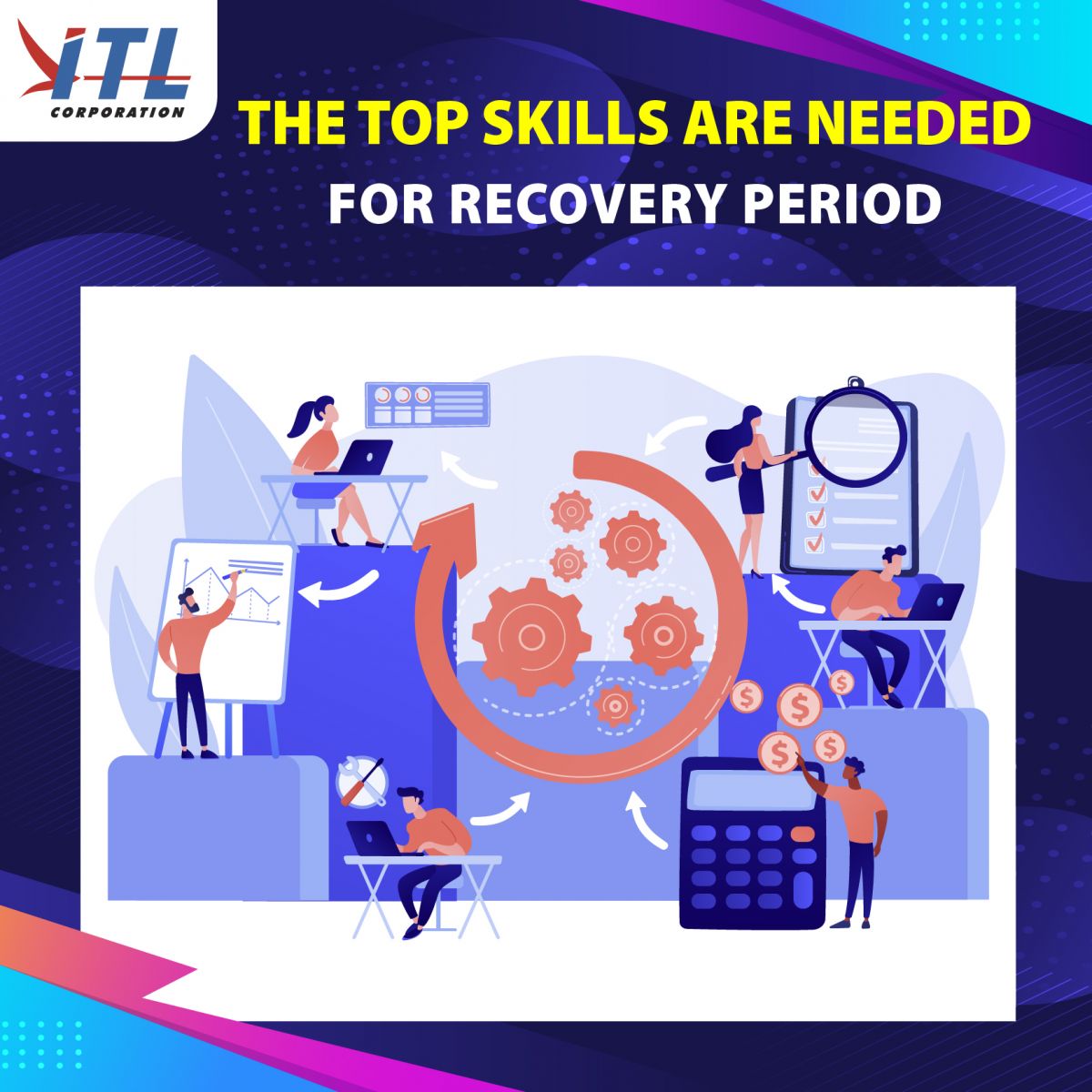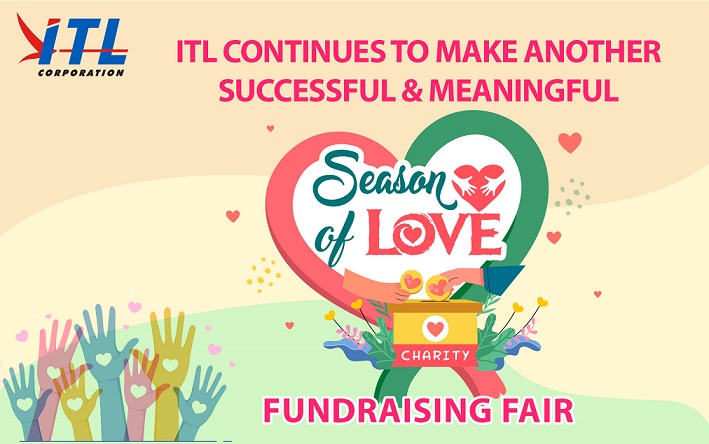08
10/21
The Top Skills Are Needed For Recovery Period
ITL is firmly entering the period of strong recovery with the solid resources and foundation that have been continuously built and developed over the years. Especially, we have a professional team of our employees, always putting customers at the center of our activities and "improvising” to situations.
In addition to the determination to accompany our company overcoming all difficulties and conquer the goals in the recovery period, ITL-ers also to learn more professional knowledge and soft skills to improve ourselves, enhance productivity in new conditions and contribute strongly to ITL's recovery period.

Let's find out the top skills that need to adapt to the New Normal and our recovery period:
In addition to the determination to accompany our company overcoming all difficulties and conquer the goals in the recovery period, ITL-ers also to learn more professional knowledge and soft skills to improve ourselves, enhance productivity in new conditions and contribute strongly to ITL's recovery period.

Let's find out the top skills that need to adapt to the New Normal and our recovery period:
- · Communication
If working remotely during Covid-19 has taught us something, it is that communication is the most fundamental soft skill to develop. During the most challenging periods in both business and social life, communication helps team members come together and understand the team goal to work together and be united.
Communication becomes critically important to organizations during the difficult times, and effective communication among co-workers is the first step for a great team.
This is a broad category: It can mean anything from how you converse with a customers and colleagues to how well you get your point across in emails. Now that most communication is done through emails, chats, video, or phone conference calls, strong communication skills are more critical than ever.
Communication becomes critically important to organizations during the difficult times, and effective communication among co-workers is the first step for a great team.
This is a broad category: It can mean anything from how you converse with a customers and colleagues to how well you get your point across in emails. Now that most communication is done through emails, chats, video, or phone conference calls, strong communication skills are more critical than ever.
- Adaptability
Again, it was one of the most demanded soft skills even before COVID-19, but the pandemic has made adaptability a must-have soft skill. It can be easily understood why. Adaptability is the ability to change an approach to a job to keep up with fluctuating circumstances. People who can adapt quickly to different situations will perform better in times of uncertainty as to the ones we are living in today.
How to improve: Learn to step out of your comfort zone, practice things you haven’t done before and get used to it. It’s fine if at the beginning you are feeling nervous, keep on practicing and you will see that with time it will be easier for you to adapt to changes. Furthermore, research shows that people with higher levels of emotional intelligence are more prone to adapt to new situations. Hence, we suggest you work on your emotional intelligence.
How to improve: Learn to step out of your comfort zone, practice things you haven’t done before and get used to it. It’s fine if at the beginning you are feeling nervous, keep on practicing and you will see that with time it will be easier for you to adapt to changes. Furthermore, research shows that people with higher levels of emotional intelligence are more prone to adapt to new situations. Hence, we suggest you work on your emotional intelligence.
- Emotional Intelligence
Emotional Intelligence is the capacity to understand and recognize your emotions and those of others. People high in emotional intelligence create better relationships with clients and co-workers. Hence, emotional intelligence is fundamental to foster positive relationships.
- Innovation
Innovation and creativity are probably the buzzwords of the last five years, at least in the business world. They refer to the capacity of inventing something new and to the art of creating new strategies for old problems. An innovative approach will help organizations to come up with solutions to face tomorrow’s problems.
It is often thought that the capacity to innovate or create is innate in a person. But it is one of the biggest misconceptions of our times. You can train your creativity by identifying a specific problem and thinking about different solutions to solve it. It is important also to see what other businesses have done before you. Remember, innovation is the capacity to solve old problems by adopting new perspectives.
It is often thought that the capacity to innovate or create is innate in a person. But it is one of the biggest misconceptions of our times. You can train your creativity by identifying a specific problem and thinking about different solutions to solve it. It is important also to see what other businesses have done before you. Remember, innovation is the capacity to solve old problems by adopting new perspectives.
- Resilience
A strong organization is made up by strong individuals. Along with the recovery of the organization, each member also needs to build your own resilience. Psychologists define resilience as “The process of adapting well in the face of adversity, trauma, tragedy, threats, or significant sources of stress”. This doesn’t mean that you won’t feel stressed or worried when you face adversities, but that despite this, you will find a positive way to overcome and grow from those difficulties.
The key to improving your resilience is to change your attitude towards problems. Instead of panicking, you should look at problems as a learning opportunity. In the worst scenario, you will learn what doesn’t work. So don’t be too hard on yourself and take time every day to celebrate your small or big successes. It will help you train your mind to focus on positive thoughts.
*Soure: bebs.org
The key to improving your resilience is to change your attitude towards problems. Instead of panicking, you should look at problems as a learning opportunity. In the worst scenario, you will learn what doesn’t work. So don’t be too hard on yourself and take time every day to celebrate your small or big successes. It will help you train your mind to focus on positive thoughts.
*Soure: bebs.org














